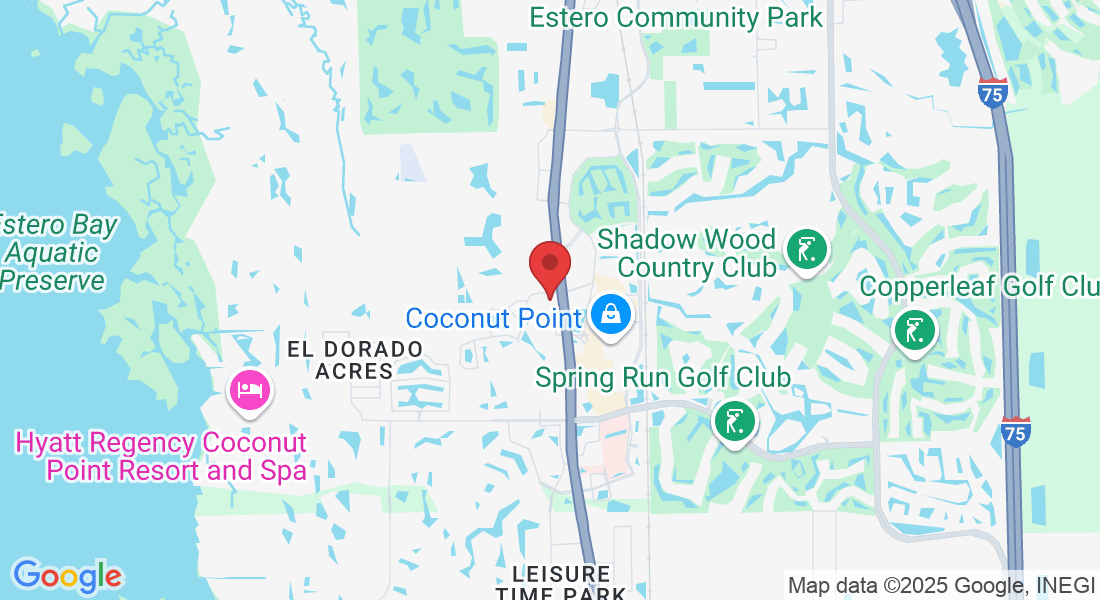Call Us: (239) 427-1455
This site is for families seeking memory care services. For employment inquiries, visit our Indeed page.
Redefining Memory Care In Estero Florida
Choosing the right memory care community for a loved one is a deeply personal decision. At Gulf Coast Memory Care, conveniently located next to Coconut Point Shopping Center in Estero, Florida, we've created a haven of tranquility where residents can experience a luxurious and comfortable lifestyle. Let us help you make this important decision with confidence.
Understanding The Benefits Of Memory Care
Hear From Jen
We believe that exceptional care begins with open, honest, and ongoing communication. Families have direct access to our leadership and caregivers, including personal cell numbers, because staying informed should never be a struggle.
Every resident also receives a personalized care plan tailored to their needs, so families always stay connected.
Is It The Right Time For Memory Care?
Understanding that memory care is not a one-size-fits-all solution, we prioritize personalized care plans that adapt to each individual’s progression.
Learn more about senior care and get personalized results in this quick 5 minute survey.
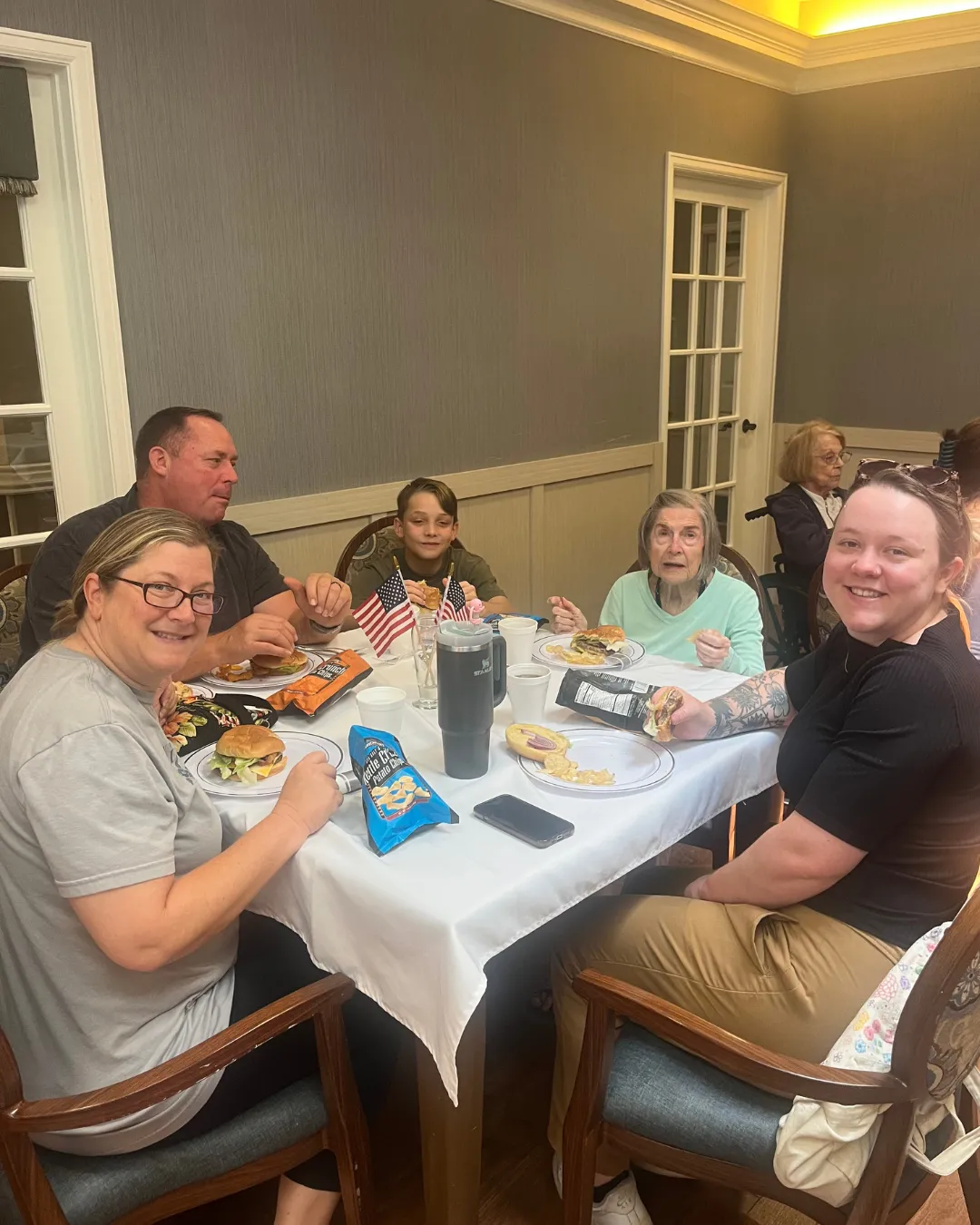
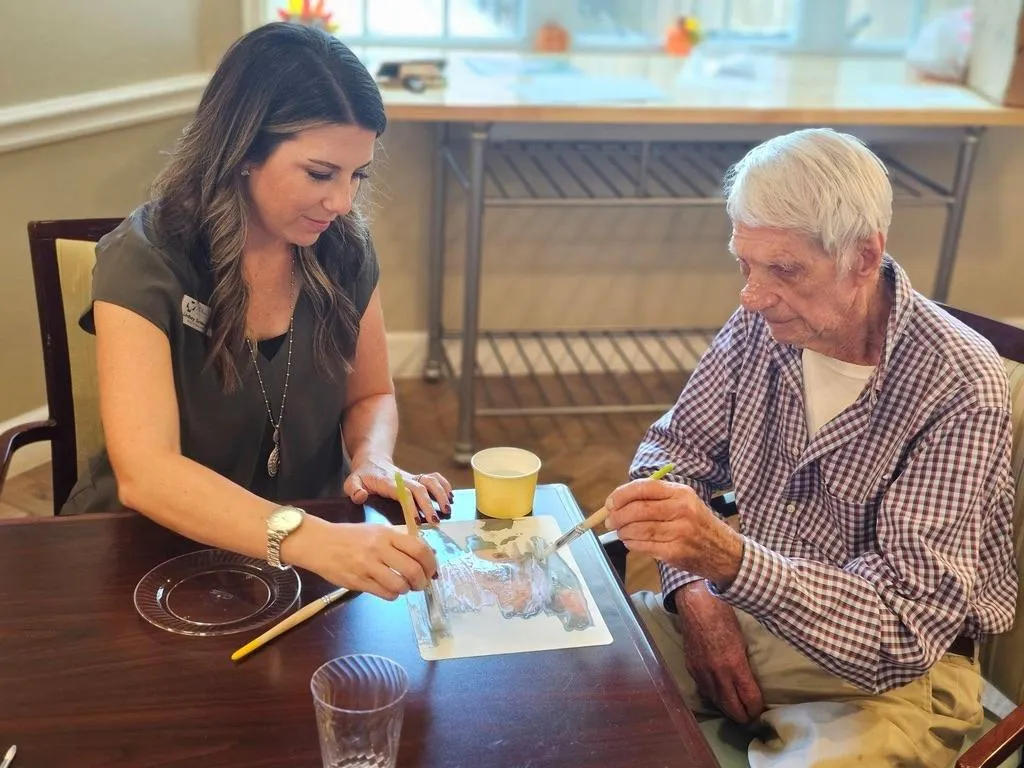
A Community For Alzheimer’s & Dementia Care
Families seeking Alzheimer’s and dementia support in Estero, Florida, can rely on our compassionate team for a community that truly cares.
Through ongoing training in the latest memory care practices and a commitment to safety, Gulf Coast Memory Care offers peace of mind for families and the highest standard of care for residents.
Love From Our Families


My mom moved into her new home a few weeks ago. I was able to visit with her this week while being in Florida and my gosh, I know she is right where she needs to be. Huge shoutout to Jerry, Diana, Paula, Kathy and Apryl. You are real life angels. The energy you bring is above and beyond. To see how you interact with not only my mom, but all the residents, it truly warms my heart. While it is heartbreaking to see my mom battle Alzheimer's, I know she is in the perfect place. She is safe and receiving the care she needs. <3 The place is clean, accommodating and most importantly feels like home. I love that there is a schedule and many activities for the residents to participate in. My mom has loved the painting and coloring
- Bill & Bonny B

Shelly Richardson

Upon entering this beautiful community, I was deeply impressed by the exceptional level of care and compassion demonstrated by all the caregivers. Every member of the team, from maintenance staff to the executive director, significantly contributes to the residents' quality of life. The interior courtyards offer a safe and beautiful outdoor escape for the residents, while the dining area is both elegant and spacious. GCMC stands out as one of the premier memory care centers I have ever visited.
- Bill & Bonny B


Exceptional dedication. Genuine care 24/7, everyone is doing a great job, from Management to the care team. Jerry and Diana are conducting the business, but you can see them walking the hallway and chatting with the residents, literally knowing everyone. There is an engine who works behind the scenes to have the day and night activity running smoothly. Family feeling, warmth, and genuine care, overall, 5 stars. Residents are never alone, there is always a pair of eyes to watch and hands ready to help as needed, but all is done in a certain way, so our loved ones don’t feel any loss of their independence. Beautifully done. The activities are not just lines on paper, everyone is involved. Food is first class.
- Bill & Bonny B
Our Senior Care Amenities
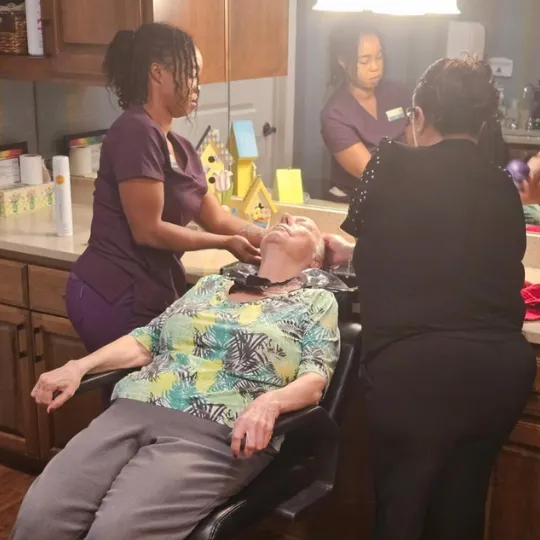
One-site beauty salon and barbershop
Personalized, chef-prepared meals
Customized activity programs
Craft and hobby room
Family living room
Full Library
Abundant natural light to minimize sundowning
Located next to Coconut Point Shopping Center
Award Winning Leadership

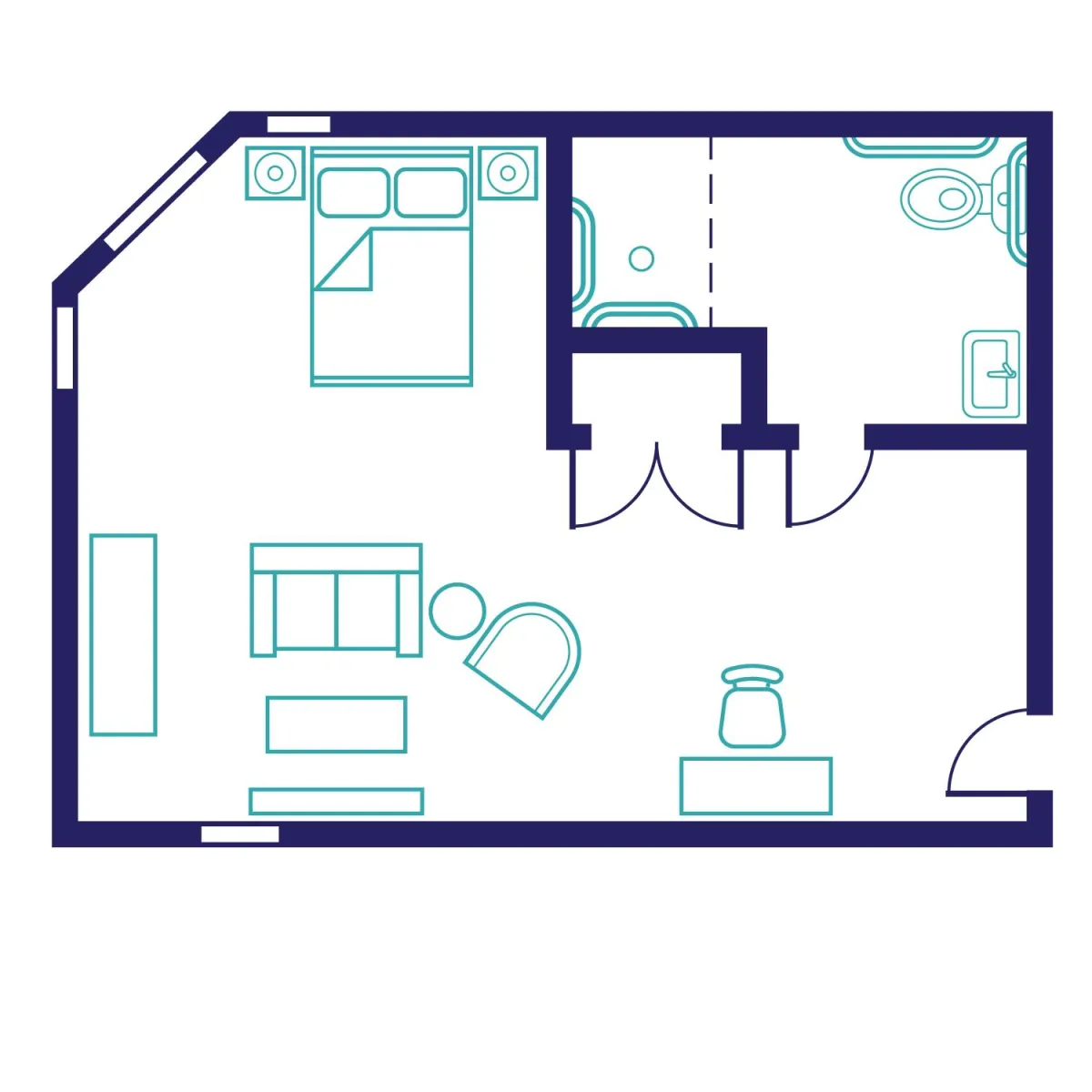
The Edison Suite
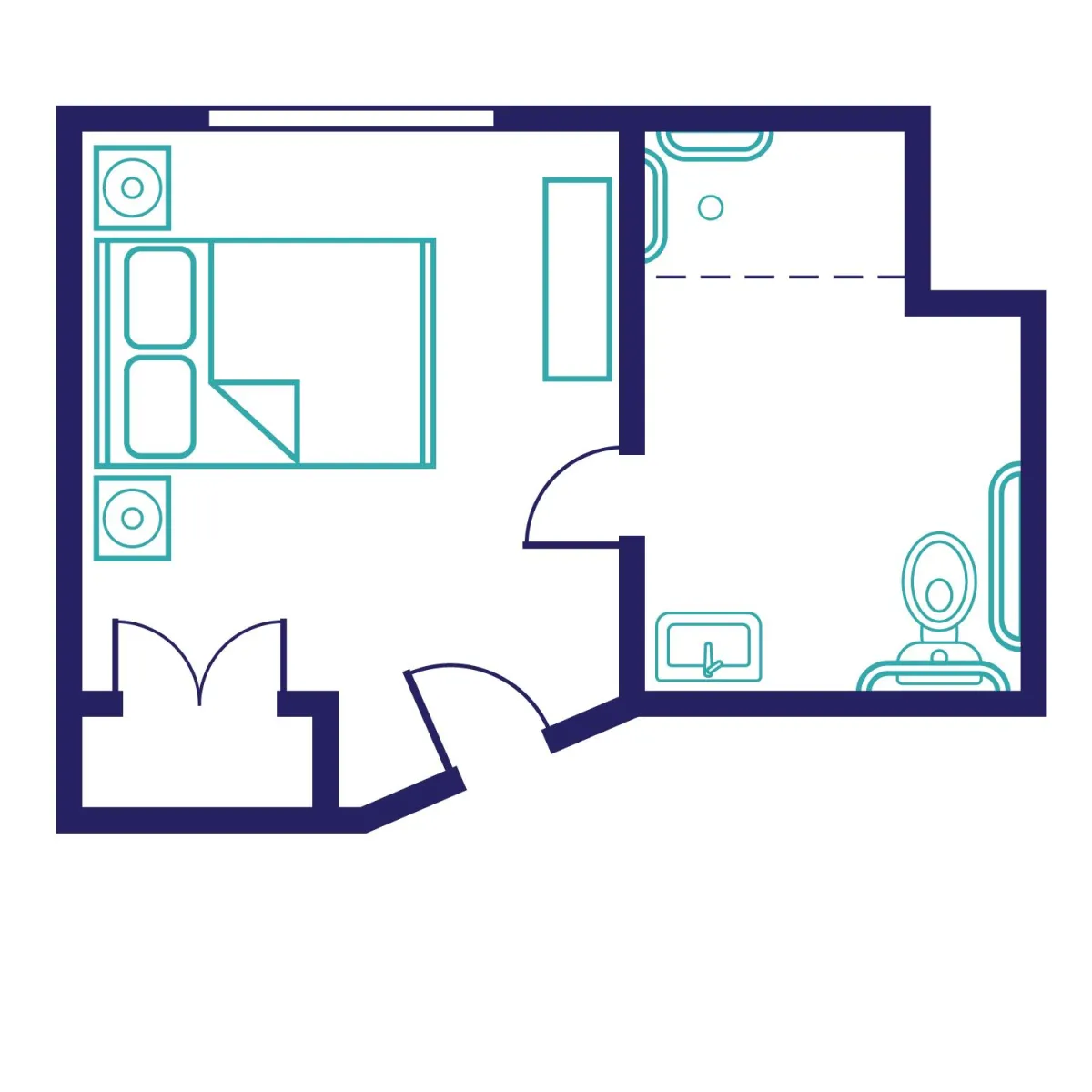
The Magnolia Suite
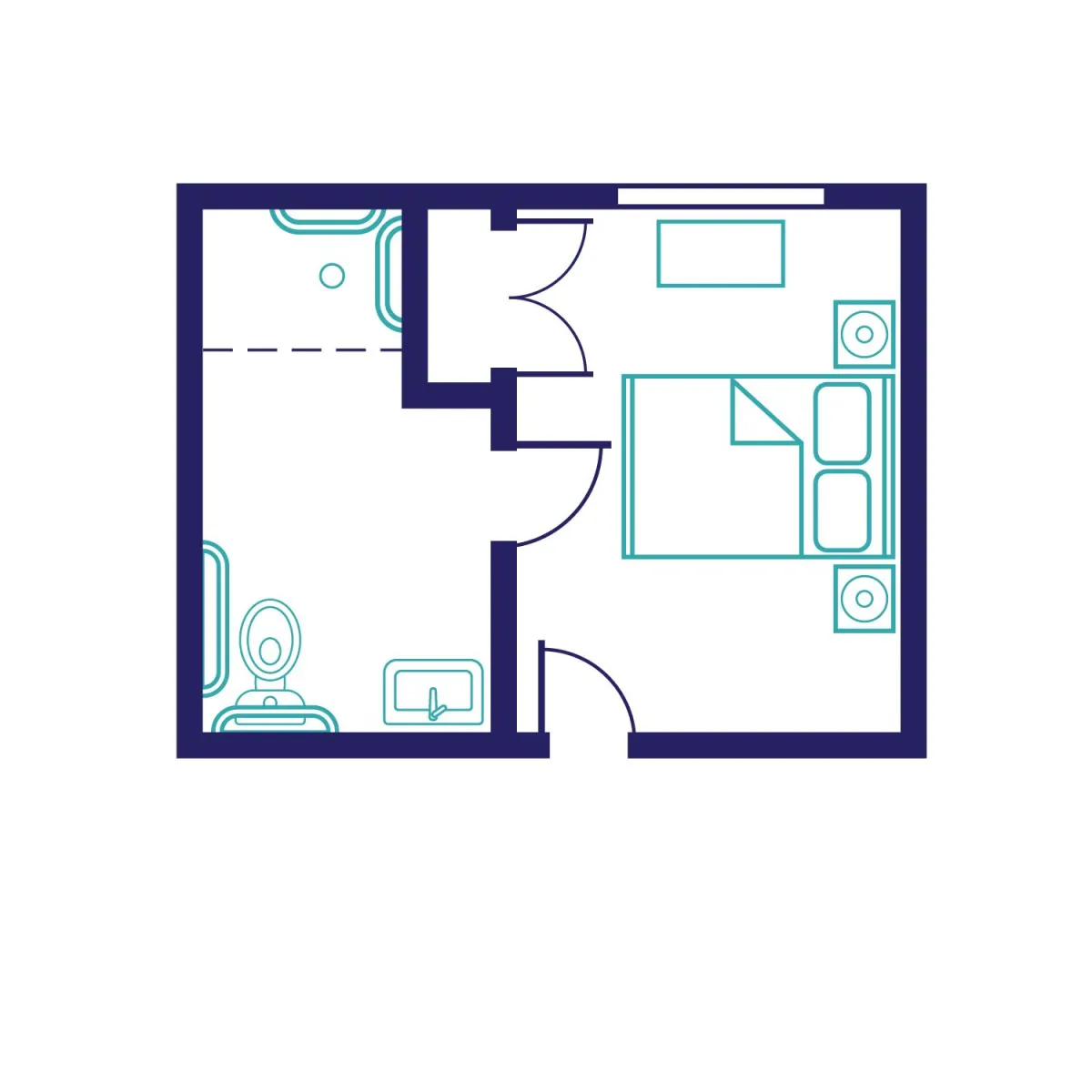
The Sugarberry Suite
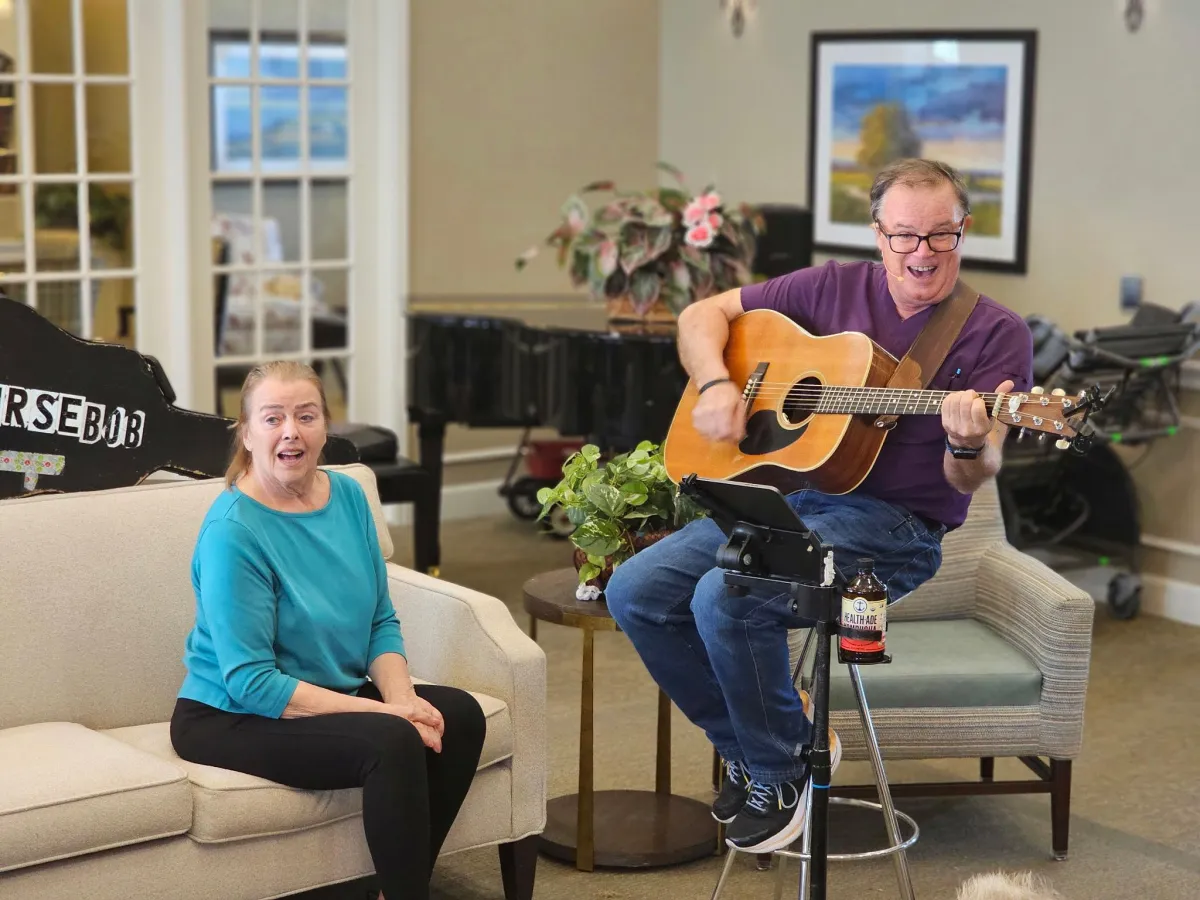
Engaging Residents With Meaningful Social Connections
We also prioritize activities that nurture both physical and mental wellness, from gentle exercise routines to social events that create a sense of community among residents. These carefully crafted programs are designed to boost mood, reduce anxiety, and encourage meaningful interactions, all of which contribute to a fulfilling lifestyle for those facing memory challenges.
Our Commitment To You
Our commitment extends to providing families with guidance and resources to understand memory loss and navigate the journey with confidence. Whether it’s through educational workshops or one-on-one consultations, we’re here to support families every step of the way, ensuring they feel connected and informed about their loved one’s care journey.
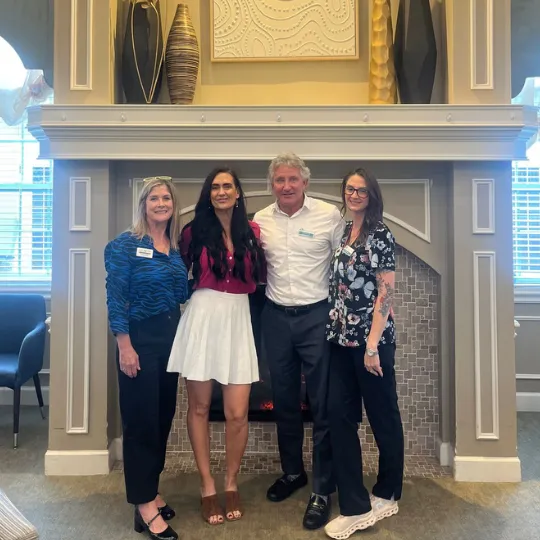
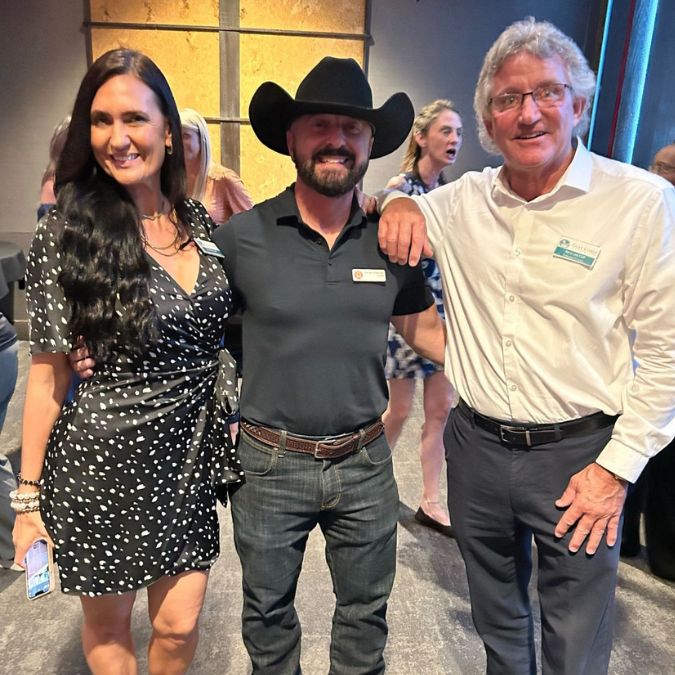
Trusted Partners in Senior Care
At Gulf Coast Memory Care, we believe exceptional care is built on collaboration. That’s why we partner with leading organizations across Southwest Florida—so you and your loved ones have access to a trusted network of support, resources, and expertise at every step of the journey.
Are You Ready To Get Settled In?
Embark on a transformative experience at Gulf Coast Memory Care in Estero, Florida. We're not just a memory care community; we're a sanctuary where the mind, body, and spirit are nurtured. If you're seeking a place where compassion, care, and a deep respect for the human soul are paramount, you've found the right haven.
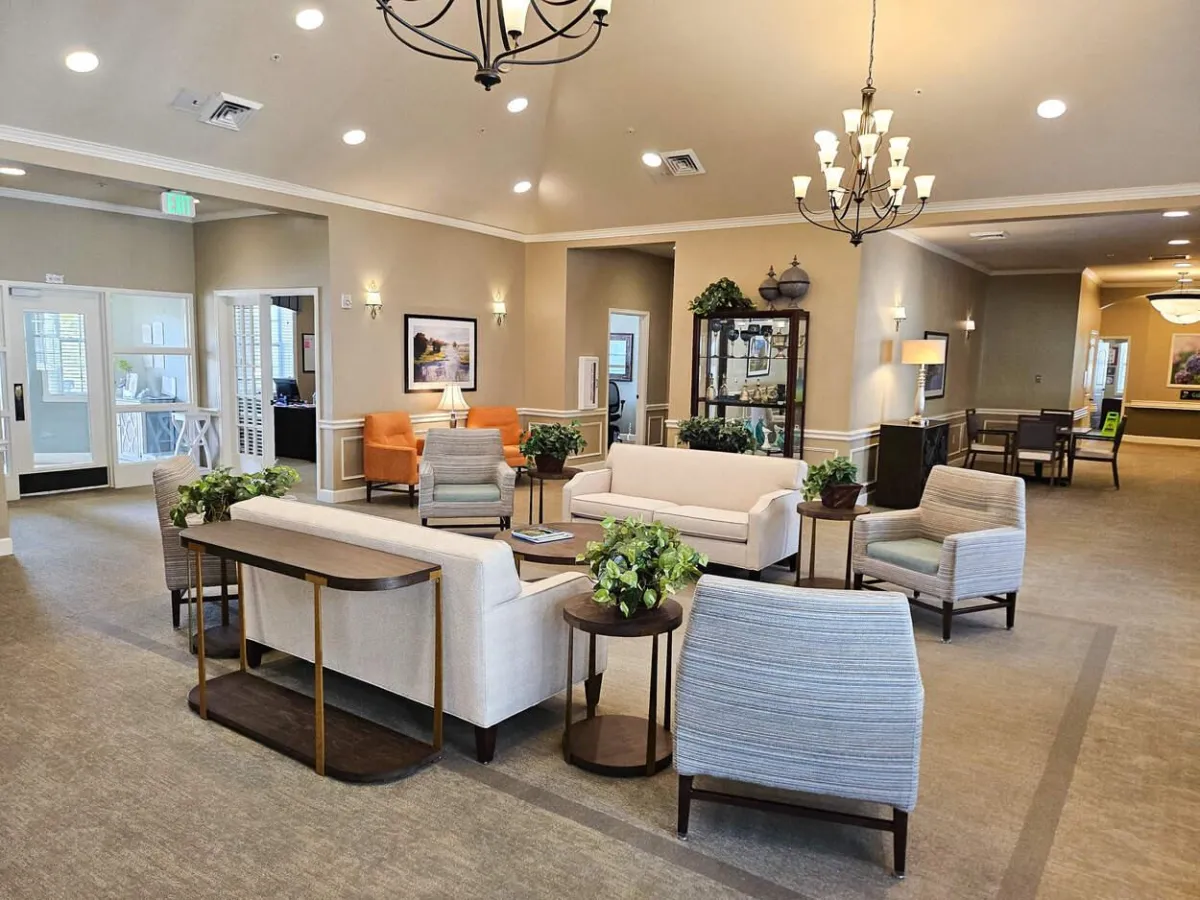
Check Out Our Blog

The Ultimate Dementia Caregiver Checklist – What You Need to Know
Caring for a loved one with dementia is a journey filled with love, patience, and, at times, overwhelming challenges. Whether you're providing care at home or considering an assisted living community, being prepared can make a world of difference—for both you and your loved one.
This guide walks you through everything you need to know as a dementia caregiver, offering a practical checklist to ensure your loved one receives the best possible care.
Understanding Dementia Care Needs
Dementia affects more than just memory—it impacts daily routines, emotional well-being, and overall quality of life. The level of care needed will depend on the stage of dementia, but one thing remains constant: structure, safety, and compassionate support are key.
For some families, providing care at home is manageable in the early stages. However, as dementia progresses, round-the-clock supervision may become necessary. This is where a memory care community can offer invaluable support, providing specialized dementia care in a safe, structured environment.
Wherever your loved one is on their journey, having a solid caregiving plan can help reduce stress and ensure they receive the care they need.
The Essential Dementia Caregiver Checklist
1. Establish a Daily Routine
Predictability is comforting for individuals with dementia. Establishing a structured daily routine helps minimize confusion and anxiety. Consider including:
Regular meal times to encourage healthy eating habits.
Consistent wake-up and bedtime schedules to regulate sleep patterns.
Daily activities such as light exercise, music therapy, or simple household tasks to encourage engagement.
Dedicated quiet time to help prevent overstimulation.
Even small disruptions can be unsettling, so maintaining consistency is key.
2. Create a Safe and Comfortable Environment
Safety is one of the biggest concerns in dementia care. Simple adjustments can help prevent accidents and promote independence.
Remove tripping hazards (rugs, clutter, or furniture with sharp edges).
Install grab bars in the bathroom and handrails in hallways.
Use soft, even lighting to reduce shadows and confusion.
Consider passive monitoring technology, like motion sensors, which can detect unusual activity patterns, such as frequent nighttime wandering.
Label doors, drawers, and commonly used items to help with recognition.
If your loved one is in a memory care community, you’ll want to ask about their safety measures, such as secured outdoor areas and staff training in dementia care.
3. Medication & Health Management
Managing medications and keeping track of health conditions is crucial. Many individuals with dementia take multiple medications, which can become overwhelming.
Maintain a medication schedule and use a pill organizer.
Schedule regular medical check-ups, including vision and hearing tests.
Monitor for signs of dehydration or malnutrition, as dementia can impact appetite and thirst awareness.
Keep a record of any behavioral or physical changes that may indicate new health concerns.
Many assisted living communities offer medication management services, which can be a huge relief for caregivers.
4. Support Emotional & Social Well-Being
Dementia can be isolating, both for the individual and their caregivers. Social interaction and emotional support are just as important as physical care.
Engage in memory-stimulating activities, such as storytelling, looking through old photos, or listening to familiar music.
Encourage light physical activities, such as short walks or chair exercises, to improve mood and mobility.
Foster social connections through visits with friends and family, or by participating in group activities in a memory care community.
Pay attention to emotional cues—frustration, agitation, or withdrawal may signal unmet needs.
Caregiving is emotionally demanding, so don’t forget to take care of yourself, too. Joining a dementia caregiver support group can provide a safe space to share experiences and receive encouragement.
5. Legal & Financial Planning
Dementia care can be costly, and planning ahead is essential. Having legal and financial affairs in order ensures your loved one’s wishes are respected and that care decisions can be made without unnecessary stress.
Establish or update a power of attorney for healthcare and financial matters.
Discuss long-term care options and costs, including memory care communities.
Research financial assistance programs, such as Medicaid or veterans’ benefits, if applicable.
Keep important documents (insurance, medical history, living will) organized and accessible.
Legal conversations can be difficult, but having them early will prevent confusion down the road.
6. Planning Ahead: Legal and Financial Essentials
Beyond daily care, it's crucial to have legal and financial affairs in order to protect both your loved one and yourself. Proactively managing these tasks can prevent immense stress during a crisis.
Gather Key Documents: Locate and organize important papers. This includes birth certificates, Social Security information, insurance policies, and property deeds. Store them in a secure, accessible location.
Legal Authority: If not already established, consult with an elder law attorney to set up a Durable Power of Attorney for healthcare and finances. This legally designates a person to make decisions on their behalf when they are no longer able to.
Review Wills and Trusts: Ensure that your loved one's will or living trust is up-to-date and reflects their current wishes.
When to Consider a Memory Care Community
Many families struggle with the decision of whether to move their loved one into a memory care community. While home care can work for some, there may come a point when professional care is the best option.
Signs it may be time to consider assisted living for dementia care:
Increased safety concerns, such as frequent falls or wandering.
Difficulty managing daily hygiene, meals, or medication.
Unmanageable behavioral changes, such as aggression or extreme confusion.
Caregiver burnout—if you’re feeling overwhelmed, it’s okay to seek support.
What to Look for in a Memory Care Community
Not all assisted living communities are the same. When exploring options, consider:
Staff training in dementia care and behavior management.
Safety features, including secured outdoor spaces and discreet monitoring technology.
Personalized care plans tailored to different stages of dementia.
Meaningful activities designed to stimulate cognitive function.
A warm, welcoming atmosphere that feels like home.
A quality memory care community will offer not just care, but connection, comfort, and peace of mind.
Frequently Asked Questions (FAQ)
Q: What is the most important thing for a new dementia caregiver to do first?A: The first step is always to ensure a safe environment. This includes removing tripping hazards, securing dangerous items, and implementing measures to prevent wandering. Once safety is established, you can focus on creating a structured daily routine.
Q: How can I manage caregiver burnout?A: Burnout is a serious risk. It's vital to prioritize your own well-being. Schedule regular breaks, even if they are short. Connect with a local or online caregiver support group to share experiences and advice. Do not be afraid to ask for help from family, friends, or respite care services. Remember, you cannot pour from an empty cup.
Final Thoughts & Helpful Resources
Dementia caregiving is a challenging but deeply meaningful journey. By having a structured plan and knowing when to seek additional support, you can ensure your loved one continues to live with dignity and quality of life.
Whether you're caring for a loved one at home or considering a specialized memory care community, this checklist provides a strong foundation for making informed decisions.
If you're looking for compassionate, expert-led dementia care, Gulf Coast Memory Care is here to help. Reach out today to learn more about how our dedicated team can support you and your loved one on this journey.
Contact Us to learn more about our memory care community and how we can provide the best possible care for your loved one.

The Ultimate Dementia Caregiver Checklist – What You Need to Know
Caring for a loved one with dementia is a journey filled with love, patience, and, at times, overwhelming challenges. Whether you're providing care at home or considering an assisted living community, being prepared can make a world of difference—for both you and your loved one.
This guide walks you through everything you need to know as a dementia caregiver, offering a practical checklist to ensure your loved one receives the best possible care.
Understanding Dementia Care Needs
Dementia affects more than just memory—it impacts daily routines, emotional well-being, and overall quality of life. The level of care needed will depend on the stage of dementia, but one thing remains constant: structure, safety, and compassionate support are key.
For some families, providing care at home is manageable in the early stages. However, as dementia progresses, round-the-clock supervision may become necessary. This is where a memory care community can offer invaluable support, providing specialized dementia care in a safe, structured environment.
Wherever your loved one is on their journey, having a solid caregiving plan can help reduce stress and ensure they receive the care they need.
The Essential Dementia Caregiver Checklist
1. Establish a Daily Routine
Predictability is comforting for individuals with dementia. Establishing a structured daily routine helps minimize confusion and anxiety. Consider including:
Regular meal times to encourage healthy eating habits.
Consistent wake-up and bedtime schedules to regulate sleep patterns.
Daily activities such as light exercise, music therapy, or simple household tasks to encourage engagement.
Dedicated quiet time to help prevent overstimulation.
Even small disruptions can be unsettling, so maintaining consistency is key.
2. Create a Safe and Comfortable Environment
Safety is one of the biggest concerns in dementia care. Simple adjustments can help prevent accidents and promote independence.
Remove tripping hazards (rugs, clutter, or furniture with sharp edges).
Install grab bars in the bathroom and handrails in hallways.
Use soft, even lighting to reduce shadows and confusion.
Consider passive monitoring technology, like motion sensors, which can detect unusual activity patterns, such as frequent nighttime wandering.
Label doors, drawers, and commonly used items to help with recognition.
If your loved one is in a memory care community, you’ll want to ask about their safety measures, such as secured outdoor areas and staff training in dementia care.
3. Medication & Health Management
Managing medications and keeping track of health conditions is crucial. Many individuals with dementia take multiple medications, which can become overwhelming.
Maintain a medication schedule and use a pill organizer.
Schedule regular medical check-ups, including vision and hearing tests.
Monitor for signs of dehydration or malnutrition, as dementia can impact appetite and thirst awareness.
Keep a record of any behavioral or physical changes that may indicate new health concerns.
Many assisted living communities offer medication management services, which can be a huge relief for caregivers.
4. Support Emotional & Social Well-Being
Dementia can be isolating, both for the individual and their caregivers. Social interaction and emotional support are just as important as physical care.
Engage in memory-stimulating activities, such as storytelling, looking through old photos, or listening to familiar music.
Encourage light physical activities, such as short walks or chair exercises, to improve mood and mobility.
Foster social connections through visits with friends and family, or by participating in group activities in a memory care community.
Pay attention to emotional cues—frustration, agitation, or withdrawal may signal unmet needs.
Caregiving is emotionally demanding, so don’t forget to take care of yourself, too. Joining a dementia caregiver support group can provide a safe space to share experiences and receive encouragement.
5. Legal & Financial Planning
Dementia care can be costly, and planning ahead is essential. Having legal and financial affairs in order ensures your loved one’s wishes are respected and that care decisions can be made without unnecessary stress.
Establish or update a power of attorney for healthcare and financial matters.
Discuss long-term care options and costs, including memory care communities.
Research financial assistance programs, such as Medicaid or veterans’ benefits, if applicable.
Keep important documents (insurance, medical history, living will) organized and accessible.
Legal conversations can be difficult, but having them early will prevent confusion down the road.
6. Planning Ahead: Legal and Financial Essentials
Beyond daily care, it's crucial to have legal and financial affairs in order to protect both your loved one and yourself. Proactively managing these tasks can prevent immense stress during a crisis.
Gather Key Documents: Locate and organize important papers. This includes birth certificates, Social Security information, insurance policies, and property deeds. Store them in a secure, accessible location.
Legal Authority: If not already established, consult with an elder law attorney to set up a Durable Power of Attorney for healthcare and finances. This legally designates a person to make decisions on their behalf when they are no longer able to.
Review Wills and Trusts: Ensure that your loved one's will or living trust is up-to-date and reflects their current wishes.
When to Consider a Memory Care Community
Many families struggle with the decision of whether to move their loved one into a memory care community. While home care can work for some, there may come a point when professional care is the best option.
Signs it may be time to consider assisted living for dementia care:
Increased safety concerns, such as frequent falls or wandering.
Difficulty managing daily hygiene, meals, or medication.
Unmanageable behavioral changes, such as aggression or extreme confusion.
Caregiver burnout—if you’re feeling overwhelmed, it’s okay to seek support.
What to Look for in a Memory Care Community
Not all assisted living communities are the same. When exploring options, consider:
Staff training in dementia care and behavior management.
Safety features, including secured outdoor spaces and discreet monitoring technology.
Personalized care plans tailored to different stages of dementia.
Meaningful activities designed to stimulate cognitive function.
A warm, welcoming atmosphere that feels like home.
A quality memory care community will offer not just care, but connection, comfort, and peace of mind.
Frequently Asked Questions (FAQ)
Q: What is the most important thing for a new dementia caregiver to do first?A: The first step is always to ensure a safe environment. This includes removing tripping hazards, securing dangerous items, and implementing measures to prevent wandering. Once safety is established, you can focus on creating a structured daily routine.
Q: How can I manage caregiver burnout?A: Burnout is a serious risk. It's vital to prioritize your own well-being. Schedule regular breaks, even if they are short. Connect with a local or online caregiver support group to share experiences and advice. Do not be afraid to ask for help from family, friends, or respite care services. Remember, you cannot pour from an empty cup.
Final Thoughts & Helpful Resources
Dementia caregiving is a challenging but deeply meaningful journey. By having a structured plan and knowing when to seek additional support, you can ensure your loved one continues to live with dignity and quality of life.
Whether you're caring for a loved one at home or considering a specialized memory care community, this checklist provides a strong foundation for making informed decisions.
If you're looking for compassionate, expert-led dementia care, Gulf Coast Memory Care is here to help. Reach out today to learn more about how our dedicated team can support you and your loved one on this journey.
Contact Us to learn more about our memory care community and how we can provide the best possible care for your loved one.
Come Visit Us
We can't wait to hear from you! Fill out our contact form to get started or if you would like to see our community for yourself, schedule a tour here.
Gulf Coast Memory Care
(239) 427-1455
22900 Lyden Dr, Estero, FL 33928
AL# 12921
Privacy Policy | Accessibility Statement | Visitation Policy

